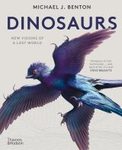![Making Sense of Science Making Sense of Science]()
Click to have a closer look
About this book
Contents
Customer reviews
Biography
Related titles
About this book
"I'm not a scientist" is a familiar refrain among people asked to evaluate scientific claims they feel are beyond their ken. Most citizens learn about science from media coverage, and even the most conscientious reporters sometimes struggle to offer a clear, unbiased explanation to readers. Politicians, activists, business spokespersons, and religious leaders with their own agendas to pursue also influence the way science is reported and discussed. Meanwhile, anyone seeking factual information on climate change, vaccine safety, risk of terrorist attack, or other topics in the news must sift through an avalanche of bogus assertions and self-interested spin.
Making Sense of Science seeks to equip nonscientists with a set of critical tools to evaluate the scientific claims and controversies that shape our lives. Cornelia Dean draws on thirty years of experience as a science journalist with the New York Times to expose the flawed reasoning and knowledge gaps that handicap readers with little background in science. Shortcomings in K–12 education are partly to blame, but so too is the public's indifference to the way science is done and communicated. Dean shows how venues such as courtrooms and talk shows become fonts of scientific misinformation. She also calls attention to the conflicts of interest that color scientific research, as well as the price society pays when science journalism declines and government funding for research dries up.
Timely and provocative, Making Sense of Science warns us all that we can no longer afford to make a virtue of our collective scientific ignorance.
Contents
Preface
Introduction
1. We the People
What We Know, and What We Don’t Know
The Belief Engine
Thinking about Risk
2. The Research Enterprise
What Is Science?
How Science Knows What It Knows
Models
A Jury of Peers
3. Things Go Wrong
Misconduct
Science in Court
Researchers and Journalists
4. The Universal Solvent
A Matter of Money
Selling Health
What’s for Supper?
5. Political Science
Constituency of Ignorance
The Political Environment
Taking Things on Faith
Conclusion
Appendix: Trustworthy, Untrustworthy, or Irrelevant?
Notes
Further Reading
Acknowledgments
Index
Customer Reviews
Biography
Cornelia Dean is a science writer for the New York Times and Writer-in-Residence at Brown University.
Popular Science
By: Cornelia Dean(Author)
281 pages, no illustrations
"This engaging book offers non-scientists the tools to connect with and evaluate science, and for scientists it is a timely call to action for effective communication."
– Laura Bowater, Times Higher Education
"Fascinating [...] Its mission is to help nonscientists evaluate scientific claims, with much attention paid to studies related to health."
– Froma Harrop, The Seattle Times
"Dean explains how, despite living in an 'age of science,' the American public is largely ignorant about what science is and how it works [...] Dean offers a step-by-step guide for evaluating science. In a few simple steps, she explains how to decide who is an expert, how to understand data, what you need to do to read science and figure out whether someone is lying to you [...] If science leaves you with a headache trying to figure out what's true, what it all means and who to trust, Dean's book is a great place to start."
– Koby Michaels, The Casper Star-Tribune
"This book is an accessible-by-all description of modern science and the societal gap of understanding."
– C. Sokolik, Choice
"[An] engagingly written guidebook [...] Not only are we irrational, but we are mostly ignorant about science, and Dean explores both the reasons and the effects, including our erroneous ideas about probability and risk [...] Dean's long and varied experience in the world of science reporting makes for an articulate, well-structured, and easily understood account filled with good stories and sound advice."
– Kirkus Reviews
"Current and future scientists and journalists, as well as advocates for science, will appreciate Dean's effort to combat scientific illiteracy."
– Nancy R. Curtis, Library Journal
"Dean's excellent primer will be welcomed by those who find themselves lost in the fog of rival claims about scientific issues that affect us all."
– Publishers Weekly













![Kame no Kōra wa Abarabone: Jintai de Arawasu Ugokumonozukan [Turtle Shells Have Ribs: A Picture Book of Animal Anatomy Represented by the Human Body]](http://mediacdn.nhbs.com/jackets/jackets_resizer_medium/24/249897.jpg?height=150&width=99)





















